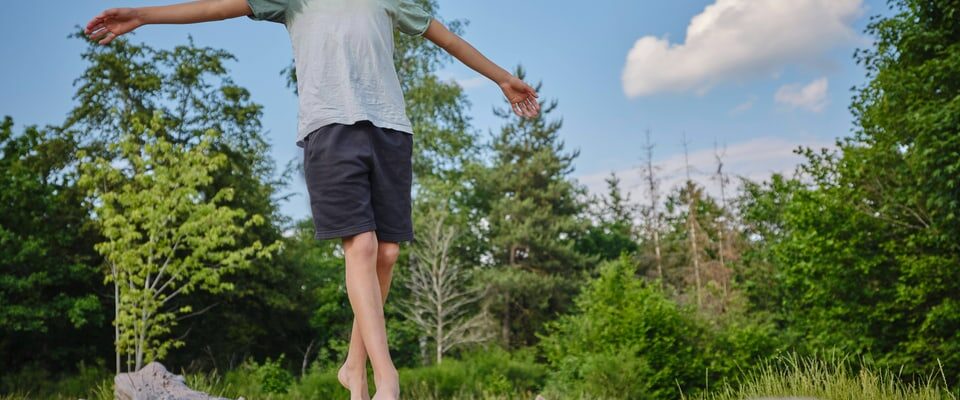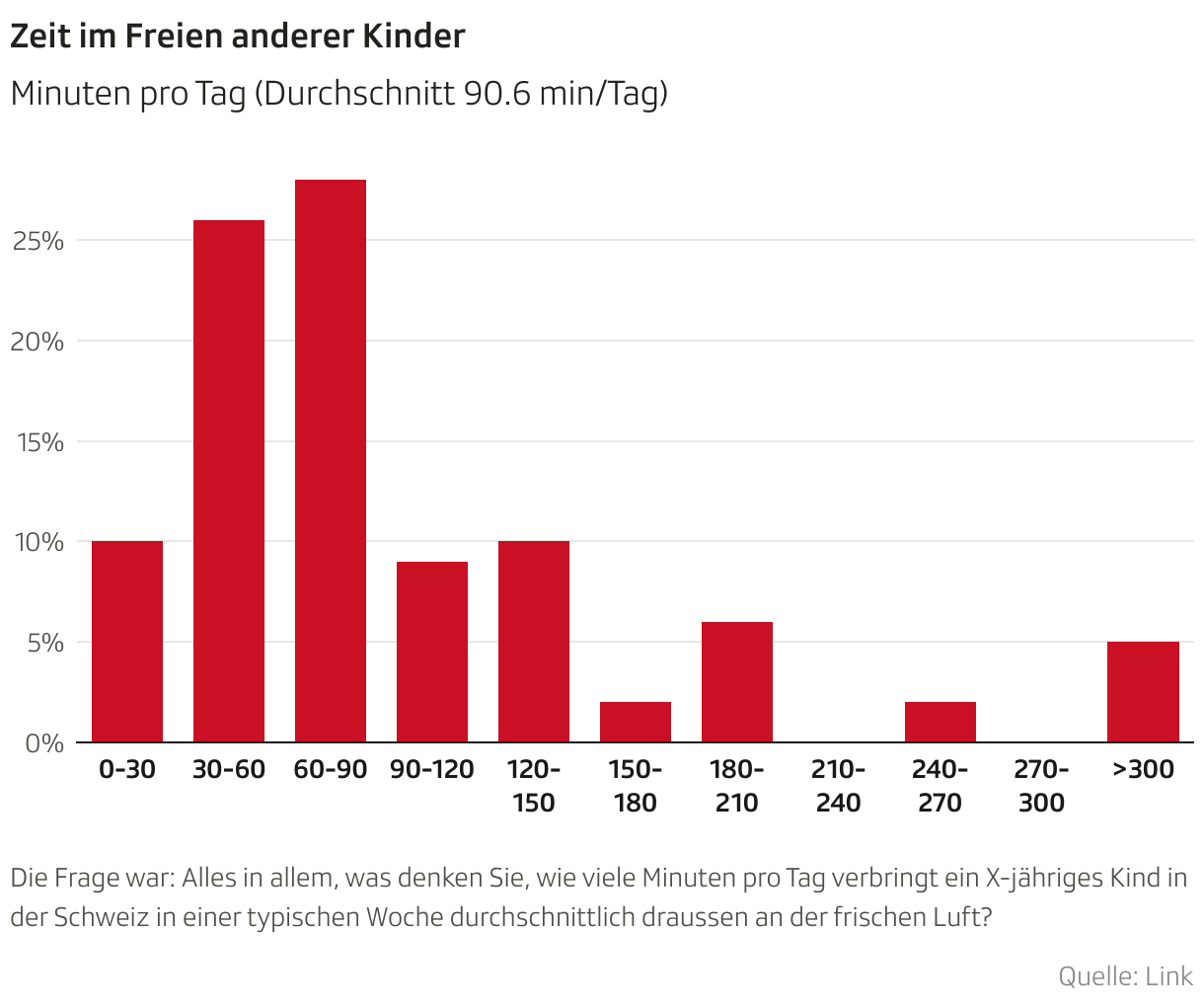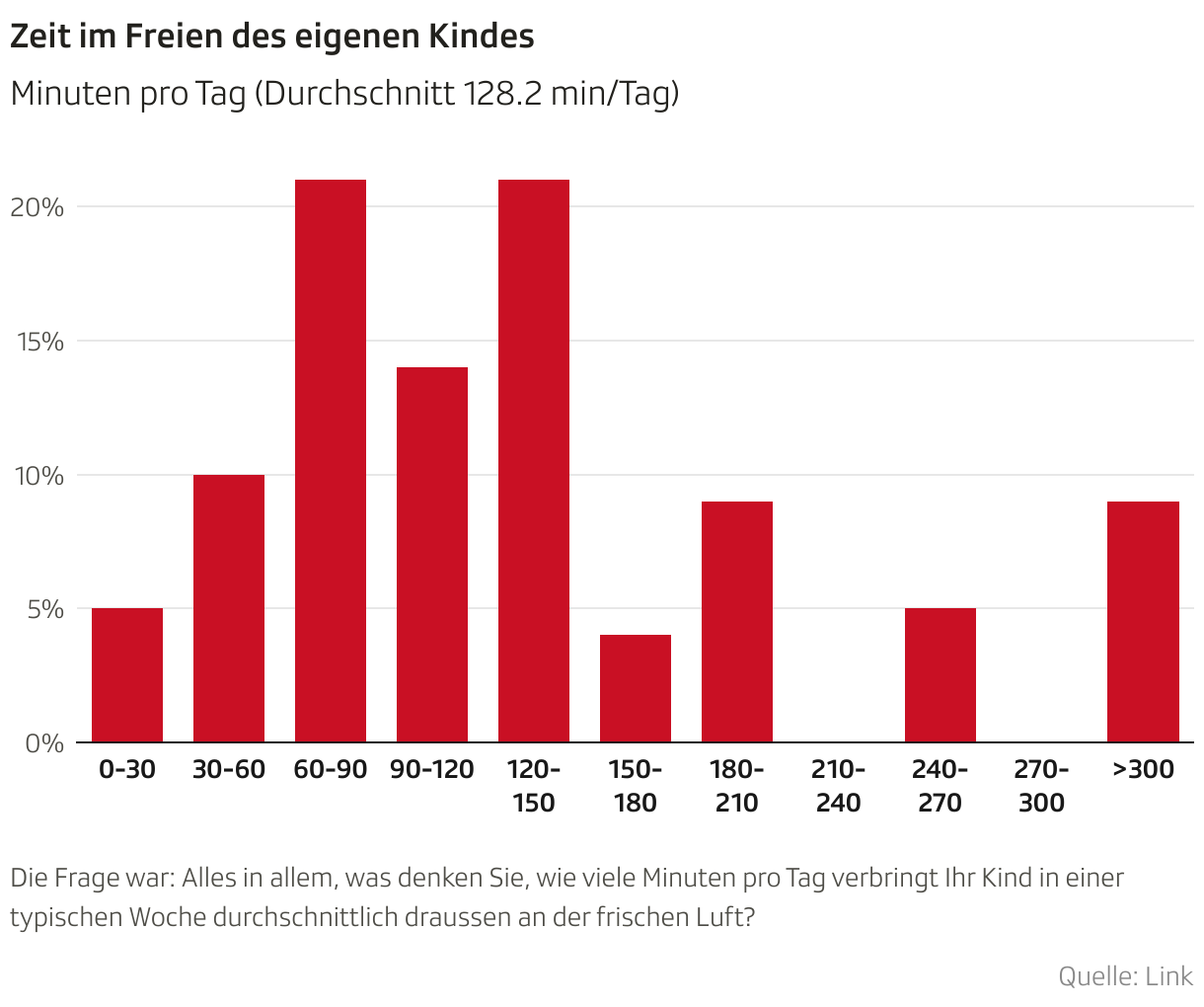Contents
Scheduled leisure time schedules and the increasing pressure to perform in childhood often prevent children from spending more time outdoors. Paradox: According to the parents, this would actually be very important.
Play outside until you drop. This is not only fun for children, it is also healthy. Various studies show that playing outside promotes good sleep, mental health, can prevent allergies and strengthens the immune system overall.
However, a new representative study by the market research company Link on behalf of the outdoor children’s clothing manufacturer namuk now shows: Swiss children spend less time outside than the last generation.
According to the study, children in Switzerland spend an average of one and a half hours outside. The low value also surprises Link marketing researcher Marianne Altgeld. “That means children spend 22.5 hours indoors.”
Parents believe in positive effects
The parents surveyed actually agree: lots of outdoor time is healthy for their children. Almost nine out of ten respondents think that time outside helps their children’s concentration and resilience, and it also makes them happier and more balanced.
And yet two-thirds of parents say they spent more time outdoors during their childhood than their children do today. The parents surveyed see advancing digitalization as the main reason for this. In other words: Children are sitting in front of screens more often than before.
Legend:
Time outdoors and especially in nature is healthy.
IMAGO / Westend61
The child and developmental psychologist at the ZHAW, Daniel Süss, agrees with the parents’ impression, but points out that not all screen activities necessarily take place indoors.
But Süss sees parents above all as responsible. Even small children often have a well-organized leisure time schedule. “We live in a self-optimization society.” In other words, the early French, the violin lesson and the Japanese course prevent playing in nature. A survey by Pro Juventute shows: One in three children is stressed, and incorrect leisure activities can be a stress factor.
No urban-rural divide
According to Lulzana Musliu, media spokesperson at Pro Juventute, a full leisure program for children does not necessarily have to be a bad thing. “If the child chooses the leisure activities themselves, they can also help against stress.” Therefore, any hobbies must always be discussed with the children.
What is surprising: According to marketing researcher Marianne Altgeld, there is no urban-rural divide. Children in the country play outdoors just as often as children in the city. However, there are differences in relation to the income and level of education of the parents. On average, children with college degrees and children from high-income households spend less time outdoors.
According to developmental psychologist Daniel Süss, this could be due to the fact that academics have particularly high demands on their children’s education. And “they can also finance the support measures”. In addition, they are generally more involved in work and are therefore happy when the children are looked after somewhere and not just playing freely outside.
According to Altgeld, parents have a major influence on how much time their children spend in the fresh air. This is about promoting time outdoors and being a role model. Süss shares this opinion: “Parents have to express that they enjoy being outside and then live it.”


